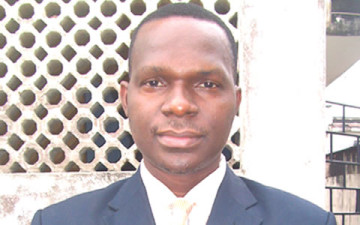Autism: Meaning and treatment
A.Y. was two years old when his mother started to get worried. She noticed that he did not answer when she called his name, despite the fact that he would come running from the room once the music of his favourite Barney TV programme started playing.
She noticed that unlike his elder sister who, at that age, was already speaking phrases, A.Y. was not yet calling her ‘mummy.’ He would rather use his mother’s hand to reach for food or toys he wanted, instead of pointing them out or asking for them.
When A.Y’s mum discussed her concerns with her friends, they all told her not to worry. “He is a late starter, he will soon talk. You know, boys talk late. My boy, too, did not talk till he was three years old….”
ADVERTISEMENT
At age three, nothing much has changed, though A.Y. now attended playgroup. The teachers were also concerned that he did not like to play with other children, and always seemed to be in his own world.
Though he liked to watch TV, especially the cartoons, he did not like to participate in any other group activities. They also observed that he liked to line up his toys and would throw tantrums at any attempt to engage him in group activities.
Now more worried, A.Y’s mum decided to discuss it with their family doctor. The General Practitioner had taken care of A.Y’s health all his life. He knew him well, yet he also reassured the worried mum that all would be well.
But knowing she was worried stiff, he offered to refer A.Y’s mum to a paediatrician for a second opinion. Finally, after series of assessments, the paediatrician realised that A.Y. was not just a late starter but he had features of autism spectrum disorder.
A.Y’s mum has not heard the word before. She became more distressed.
“What does autism mean? Will he ever talk? Will he live a normal life…. Be able to finish school, marry and live independent life?” These were some of her worries.
The paediatrician told her she needed to see Developmental Paediatrician ,who is the expert to confirm the diagnosis and answer her concerns.
That was the commencement of a long journey into the world of autism spectrum disorder for A.Y’s parents.
I was able to see A.Y, confirmed the diagnosis and placed him on therapies such as speech and behavioural therapies. Now, almost a year after, AY is talking in simple sentences, attending a mainstream school, while improving day by day in his behaviour.
April was the World’s Autism awareness month. However, not many Nigerians know about this important condition. Due to recent increase in talks and walks by some individuals and organisations in the country, thankfully, many have heard the word ‘autism’ but few really understand what it means.
Autism, or more clinically and accurately, autism spectrum disorders (ASD) are disorders of development that can cause serious social, communication and behavioural problems.
Children and adults with autism often have problems with talking and interacting with other people, while they behave in some peculiar ways.
Unfortunately, in Africa generally and Nigeria specifically, we have no local words to describe autism, as we discovered in the last Autism in Africa conference in Ghana in April 2014, with many specialists from over 10 African countries.
Many individuals with autism are often believed to be either deaf, mentally retarded or having spiritual attacks. This has led to many children and adults with autism not seeking or getting appropriate treatment early – interventions that would have helped them to improve.
A developmental paediatrician takes care of children/adolescents who have developmental, learning, or behavioural problem. The specialist possesses training and experience in the assessment and treatment of the medical and psychosocial aspects of children’s/adolescent’s developmental and behavioural problems.
NB:
This piece was contributed by a colleague, Dr. Gbemisola Boyede, a Developmental Pediatrician. She can be reached via www.gbemmydevelopmental.com <http://www.gbemmydevelopmental.com>. Her e-mail address: gbemmydevpaed@yahoo.com, or on 0708 270 3376 for comments, questions and clarifications.
Kindly visit my blog for more health information: www.doctoradesanya.blogspot.com.
To be continued.








